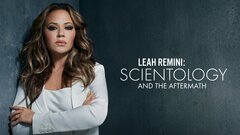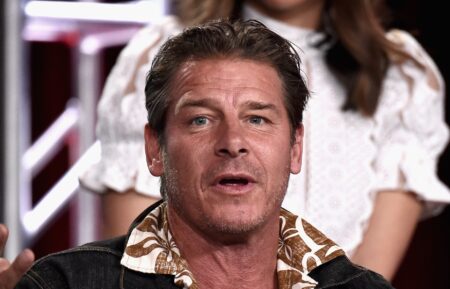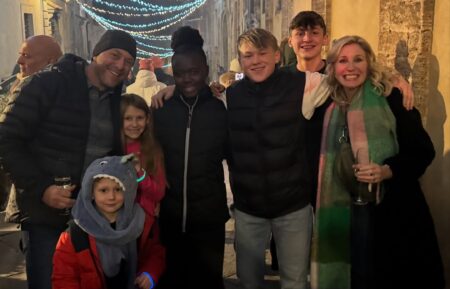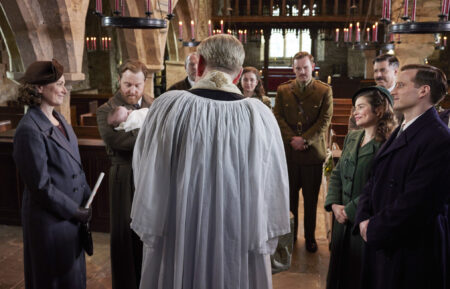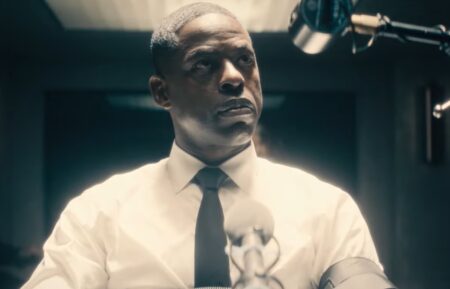Leah Remini on Scientology’s Abuse: ‘It Should Be Everyone’s Fight’
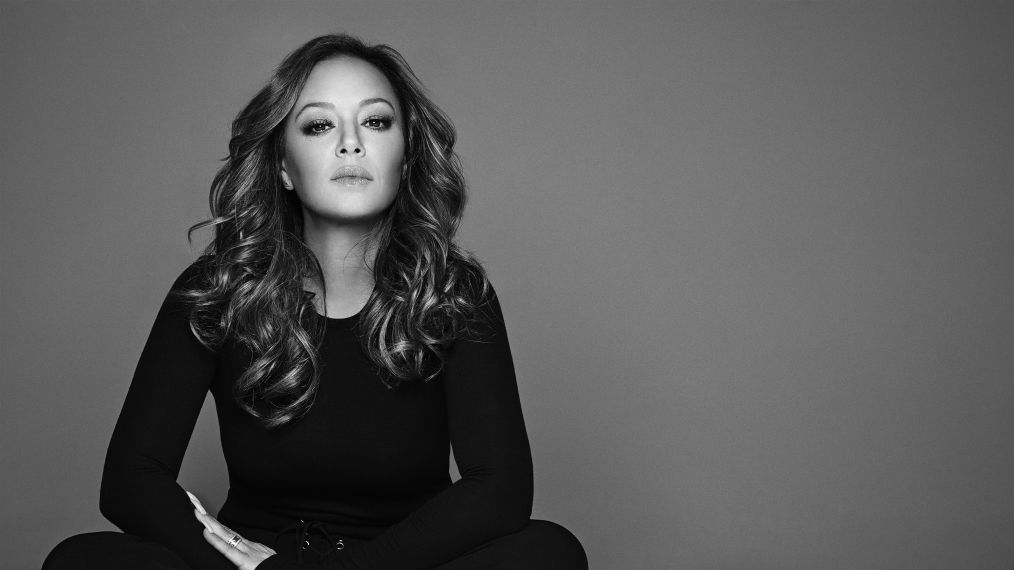
Nobody is as surprised as actress Leah Remini that her A&E series, Leah Remini: Scientology and the Aftermath, was such a hit during its first season last year. Sure, she’s already written an autobiography (Troublemaker: Surviving Hollywood and Scientology) about her experiences in the organization and appeared on countless talk shows (like her friend Chelsea Handler’s Netflix series, see video below), but the A&E series digs even deeper, and there are more stories to tell, as we’ll see in a special episode of the series, which airs Monday.
Why does Remini continue to speak out against an organization that still has a certain amount of power and influence? And, since she was a Scientologist for over 30 years, does she look back with regret over her time there? And does she see this as a personal fight or a fight for more than just herself?
We recently talked to Remini to see what’s coming next on the second season of Aftermath and about breaking her own habits when it comes to what she took from the church.
What would you say you learned from shooting the first season that’s maybe helped shape what the season two will be?
Leah Remini: Other than telling these peoples’ stories, the survivors of Scientology, is that I actually have to be a little bit more active in pursuing what I could actually do to take action against these abuses of the organization. I had assumed by this time that I would be done and that the government was going to step in. I could step back and start maybe investigating some other cult and some other injustices of the world, which is where my heart is. I didn’t realize that I’d have to do more than tell these stories.
Also, I think I’m going to be a little bit more selective in interviews [in the second season] because I don’t like the headlines that it’s my fight against the organization. It should be everyone’s fight. Honestly the people who have supported the show have done more for us than they can ever imagine. Now it’s time for the government agencies whose job it is to protect people from dangerous cults like this to do something about it.
And the IRS not to allow an organization such as this to stand behind the First Amendment and give them free reign to abuse people. That’s not why this amendment is there. It’s there to protect people, to protect real religions and beliefs. This is not that. These are not that. This and other cults like it should not be recognized under this amendment. I obviously need to do more. The headlines should be about the abuses and the people writing these stories should be just as shocked and not use my name. I’ve learned a little bit in that way to be a little bit more selective and demand that people do their job and not put it on me and [former Scientology executive] Mike Rinder as our fight. We’re not anti-Scientologist, we’re anti-bully and we’re anti-abuse.
You talked during the first season about kind of having to break the habit of the way you think and all these things because you were taught. Do you look back on those 30 years with regret, or was there actually some good that came out of it?
Nope. No. Listen, in the beginning there’s very useful tips, right? How to communicate, take responsibility for yourself, but you can learn that in other places. You’ll find most Scientologists are not educated. Most Scientologists learn to be more and more segregated from the real world as time goes on. It’s one of those things that works over time as far as the cult mentality of it, happens over time.
Of course there were good things about it. Nobody would’ve been in it if there weren’t useful things in and around the abuse and all of that, right? Everybody who is in an abusive relationship says, “Well, he says kind things to me,” or, “He does good things for our children,” or, “She’s good to us and she did this amazing thing.” I mean, it’s a course surrounding good things, right? It’s mixed in with things that are healthy. Most Scientologists get into Scientology because they believe they’re helping the world. This is what we were being told and taught everyday but Scientology as a whole is a cult and damaging over time.
Remember, it’s not free. It’s not like you can go in and just believe this or believe that. Scientology is an elitist religion. It is elitist. It is extremist. It is an extremist proposition. You are either all in or all out. Their policies dictate that, but that’s again over time. You realize, oh, this costs a half a million dollars easy and I will lose everything. That’s not religion.
Is it safe to say you’re still surprised at what you’re hearing from people.
Honey, it gets worse. I wish I could say, “Oh, that was the worst of it.” It isn’t. It isn’t.
Early on you had said that people were saying you were going to ruin your career, which it doesn’t seem to have done at all. You’re busier than ever.
Oh, totally, but that’s a Scientology campaign. That’s not a normal person campaign. Nobody ever thought that ever. By the way, I really don’t care. I mean, if the rest of my career path is social activism, I’m great with it. I love it. I love doing it. By the way, you asked me do I regret it? Absolutely not. Maybe people said this to me on social media, “Leah, you are on the path. You experienced what you did for 35 years to do this.” If I didn’t go through that I wouldn’t be able to do this. For that I am so lucky to have been involved with the Church of Scientology.
Remini recently guested on the Netflix talk show, Chelsea. [Warning: Adult language featured during interview]:
A special episode of Leah Remini: Scientology and the Aftermath airs Monday, May 29, at 9/8c on A&E.
From TV Guide Magazine
What to Expect From 'The Hunting Party's Love Triangle and Mystery
Manifest alum Melissa Roxburgh and the showrunner of NBC’s Hunting Party tease TV Guide Magazine about what’s ahead for the “government conspiracy that just keeps unfolding” — plus, the series’ “good” love triangle. Read the story now on TV Insider.





